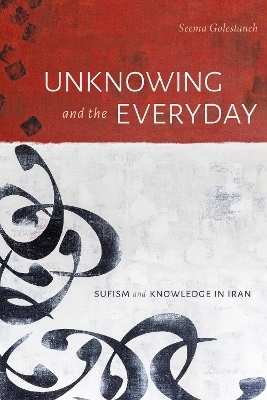
Unknowing and the Everyday
Sufism and Knowledge in Iran
Seiten
2023
Duke University Press (Verlag)
978-1-4780-1953-4 (ISBN)
Duke University Press (Verlag)
978-1-4780-1953-4 (ISBN)
Seema Golestaneh examines how Sufi mystical experience in Iran and the idea of unknowing—the idea that it is ultimately impossible to fully understand the divine—shapes contemporary life.
In Unknowing and the Everyday Seema Golestaneh examines how Sufi mystical experience in Iran shapes contemporary life. Central to this process is ma’rifat, or “unknowing”—the idea that, as it is ultimately impossible to fully understand the divine, humanity must operate from an engaged awareness that it knows nothing. Golestaneh shows that rather than considering ma’rifat an obstacle to intellectual engagement, Sufis embrace that there will always be that which they do not know. From this position, they affirm both the limits of human knowledge and the mysteries of the profane world. Through ethnographic case studies, Golestaneh traces the affective and sensory dimensions of ma’rifat in contexts such as the creation of collective Sufi spaces, the interpretation of Persian poetry, formulations of selfhood and non-selfhood, and the navigation of the socio-material realm. By outlining the relationship between ma’rifat and religious, aesthetic, and social life in Iran, Golestaneh demonstrates that for Sufis the outer bounds of human thought are the beginning rather than the limit.
In Unknowing and the Everyday Seema Golestaneh examines how Sufi mystical experience in Iran shapes contemporary life. Central to this process is ma’rifat, or “unknowing”—the idea that, as it is ultimately impossible to fully understand the divine, humanity must operate from an engaged awareness that it knows nothing. Golestaneh shows that rather than considering ma’rifat an obstacle to intellectual engagement, Sufis embrace that there will always be that which they do not know. From this position, they affirm both the limits of human knowledge and the mysteries of the profane world. Through ethnographic case studies, Golestaneh traces the affective and sensory dimensions of ma’rifat in contexts such as the creation of collective Sufi spaces, the interpretation of Persian poetry, formulations of selfhood and non-selfhood, and the navigation of the socio-material realm. By outlining the relationship between ma’rifat and religious, aesthetic, and social life in Iran, Golestaneh demonstrates that for Sufis the outer bounds of human thought are the beginning rather than the limit.
Seema Golestaneh is Assistant Professor of Near Eastern Studies at Cornell University.
Acknowledgments ix
Prologue xv
Introduction 1
1. Sufism in Iran, Iran in Sufism 29
2. Unknowing of Text, Unknowing of Authority 59
3. Unknowing of Self, Unknowing of Body 96
4. Unknowing of Memory 135
5. Unknowing of Place 165
Postscript 189
Notes 193
Bibliography 211
Index 225
| Erscheinungsdatum | 20.01.2023 |
|---|---|
| Zusatzinfo | 4 HT |
| Verlagsort | North Carolina |
| Sprache | englisch |
| Maße | 152 x 229 mm |
| Gewicht | 363 g |
| Themenwelt | Geisteswissenschaften ► Geschichte ► Regional- / Ländergeschichte |
| Geisteswissenschaften ► Religion / Theologie ► Islam | |
| Sozialwissenschaften ► Ethnologie | |
| Sozialwissenschaften ► Soziologie | |
| ISBN-10 | 1-4780-1953-0 / 1478019530 |
| ISBN-13 | 978-1-4780-1953-4 / 9781478019534 |
| Zustand | Neuware |
| Haben Sie eine Frage zum Produkt? |
Mehr entdecken
aus dem Bereich
aus dem Bereich
Erinnerungen
Buch | Softcover (2024)
Pantheon (Verlag)
CHF 22,40
Universalgelehrter, Polarreisender, Entdecker
Buch | Hardcover (2024)
mareverlag
CHF 39,20


